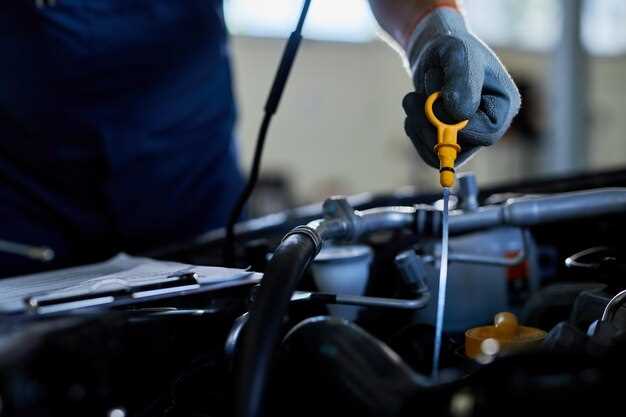
How to improve fuel efficiency with proper engine care
- Dominique Kaye
- 0
- Posted on

Maximizing fuel efficiency is a crucial objective for any vehicle owner. Proper maintenance of the engine plays a pivotal role in achieving this goal. A well-maintained engine operates more smoothly, reducing fuel consumption and ultimately saving money at the pump.
When discussing efficiency, one must consider various aspects of engine upkeep. Regular checks and timely replacements of vital components like air filters, spark plugs, and oil can greatly impact how effectively your engine uses fuel. Ignoring these essential maintenance tasks can lead to a decline in performance, increased emissions, and an unnecessary rise in fuel expenses.
Moreover, keeping the engine in optimal condition not only enhances efficiency but also prolongs the lifespan of the vehicle. By investing time and resources into proper maintenance, drivers can enjoy a more economical and environmentally friendly driving experience.
Regular Oil Changes and Their Impact on Fuel Consumption

Regular oil changes play a crucial role in maintaining engine efficiency and optimizing fuel consumption. Engine oil lubricates moving parts, reducing friction and allowing for smoother operation. As oil ages, it loses its effectiveness, becoming thicker and less efficient in performing its duties.
When the engine operates with degraded oil, the increased friction leads to higher energy consumption, directly affecting fuel efficiency. Studies indicate that vehicles with properly maintained oil systems can achieve up to a 2% improvement in fuel economy. This means that a simple change of oil at recommended intervals can result in significant savings at the pump over time.
Additionally, clean oil helps to keep the engine components free from sludge and deposits that can accumulate over time. These contaminants can hinder the engine’s performance and lead to increased fuel consumption. Regular oil changes not only ensure that the engine runs smoothly but also contribute to maintaining an optimal operating temperature, further enhancing fuel efficiency.
In summary, adhering to a regular oil change schedule not only prolongs the life of the engine but also significantly improves fuel consumption, making it an essential maintenance practice for any vehicle owner seeking to maximize efficiency and minimize operating costs.
Tire Maintenance: Inflation and Alignment for Optimal Mileage

Proper tire maintenance is crucial for enhancing fuel efficiency and maximizing engine performance. Regularly checking tire inflation is essential, as under-inflated tires create more rolling resistance, which can lead to decreased fuel efficiency. Maintaining the recommended tire pressure not only improves mileage but also ensures better handling and safety on the road.
In addition to inflation, tire alignment plays a significant role in optimizing fuel efficiency. When tires are misaligned, it can cause uneven wear and increased drag, leading to the engine working harder to propel the vehicle forward. This unnecessary strain on the engine can result in higher fuel consumption. Regular alignment checks help maintain even tire wear and contribute to optimal mileage.
By prioritizing tire maintenance, including regular inflation checks and alignment services, drivers can significantly enhance their vehicle’s fuel efficiency. This simple yet effective approach ensures the engine operates under optimal conditions, thereby prolonging its lifespan while reducing overall fuel costs.
Air Filter Replacement: Enhancing Airflow for Better Performance
Regular air filter replacement is a crucial aspect of vehicle maintenance that directly impacts fuel efficiency. The air filter’s primary function is to prevent dirt, dust, and debris from entering the engine, ensuring that only clean air is mixed with fuel for combustion. When the air filter becomes clogged, airflow diminishes, leading to insufficient oxygen reaching the engine. This can result in decreased performance and increased fuel consumption.
Maintaining a clean air filter not only optimizes engine performance but also contributes to improved fuel efficiency. A well-functioning air filter allows the engine to breathe properly, facilitating efficient combustion and maximizing power output. When the engine operates at peak efficiency, it requires less fuel to achieve the same level of performance, leading to better mileage and reduced emissions.
Replacing the air filter is typically a simple task that can be performed during routine maintenance. It’s recommended to check the air filter every 12,000 to 15,000 miles, or more frequently in dusty environments. By prioritizing air filter replacement, vehicle owners can enhance overall performance, increase fuel efficiency, and extend the life of their engine.
